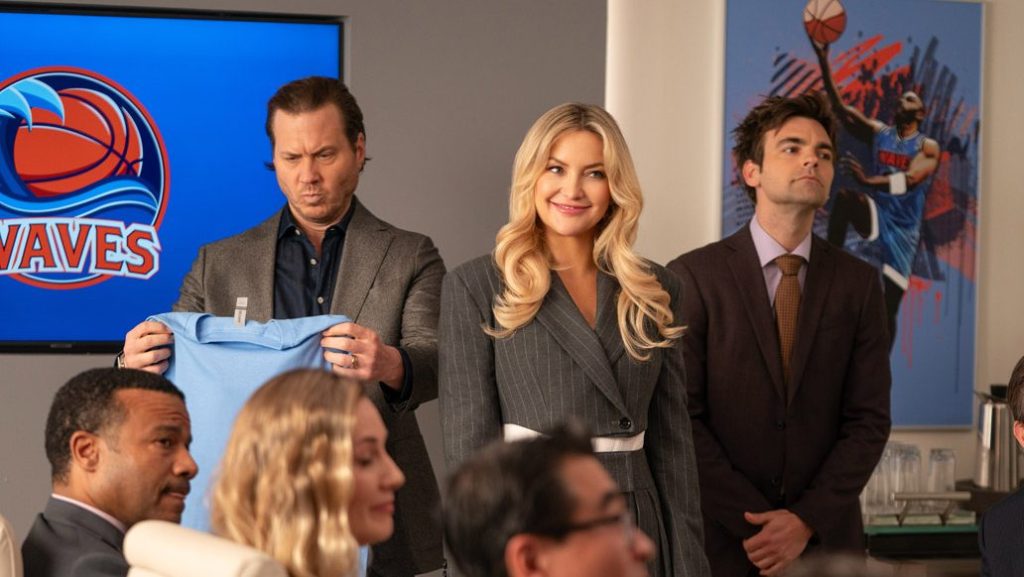Pepperdine University Takes a Stand: Legal Battle with Netflix and Warner Bros. Over Trademark Rights
In a bold legal maneuver, Pepperdine University has initiated a lawsuit against entertainment giants Netflix and Warner Bros., alleging that the companies have infringed upon its trademark related to the film “Running Point.” This case not only brings to light the complexities of trademark rights within the entertainment industry but also raises essential questions about how educational institutions protect their brands and identities in an increasingly competitive and commercialized media landscape.
The Background of the Legal Dispute
The genesis of this legal battle can be traced back to the film “Running Point,” which, while fictional in nature, is alleged to incorporate elements that infringe upon the university’s established trademark rights. Pepperdine, known for its picturesque campus and a commitment to academic excellence, argues that the film’s portrayal could mislead audiences about the university’s involvement or endorsement of the project.
The university claims that the use of its name and associated imagery in “Running Point” could create confusion among viewers, potentially damaging its reputation and goodwill. This situation is not unique; many educational institutions face similar challenges as they navigate the murky waters of trademark law and media representation.
Understanding Trademark Rights
Trademark rights serve as a vital legal shield for organizations, protecting their names, logos, and other identifiers from unauthorized use. In the context of the entertainment industry, this can become incredibly complex, as filmmakers often seek to use real-world institutions to ground their narratives in authenticity.
Pepperdine’s lawsuit highlights the critical balance between creative expression and intellectual property rights. The university’s legal team argues that while artistic freedom is essential, it should not come at the expense of a trademark owner’s rights. The implications of this case could set a precedent for how similar disputes are handled in the future.
Implications for Educational Institutions
This legal battle underscores the need for educational institutions to be vigilant in protecting their trademarks. As universities increasingly find themselves in the spotlight—from athletic events to media portrayals—they must ensure that their identities are not compromised. Some potential ramifications of this lawsuit include:
- Increased Scrutiny: Educational institutions may need to scrutinize scripts and productions that reference their names more closely.
- Policy Development: Universities might develop more robust policies regarding the use of their trademarks in film and media.
- Litigation Preparedness: Institutions may need to prepare for potential litigation if their trademarks are used without proper authorization.
The Broader Context of Trademark Infringement in Film
Pepperdine University’s lawsuit is just one of many examples of trademark disputes that have arisen in the entertainment sector. The intersection of creative storytelling and intellectual property rights can lead to significant legal challenges. Other institutions and individuals have found themselves embroiled in similar conflicts, often with varying outcomes.
For example, the film industry frequently employs real-life brands and institutions to add depth to their narratives, but this practice can lead to complications when those entities feel misrepresented. The challenge lies in determining where artistic license ends and trademark infringement begins.
Precedents and Legal Considerations
Legal precedents surrounding trademark rights in film can provide insights into how Pepperdine’s case may unfold. Courts often consider factors such as:
- Likelihood of Confusion: Is it likely that the audience will confuse the film’s portrayal with the actual institution?
- Degree of Distinctiveness: How distinct is the trademark in question? Universities typically have strong claims due to their unique branding.
- Fair Use Doctrine: Does the use of the trademark fall under fair use, allowing for artistic or educational purposes?
These considerations will play a crucial role in how the court assesses Pepperdine’s claims against Netflix and Warner Bros. The outcome could redefine how trademarks are utilized in media and the scope of protection afforded to educational institutions.
The Response from Netflix and Warner Bros.
As the lawsuit unfolds, Netflix and Warner Bros. have yet to publicly comment on the specifics of the case. However, it is expected that their defense will rest on the principles of creative expression and fair use. The entertainment companies may argue that the film’s narrative does not suggest an official endorsement from Pepperdine but rather reflects a fictional representation.
How these companies address the claims will be pivotal not only for Pepperdine but also for the broader industry, as many creators often tread a fine line between inspiration and infringement.
Potential Outcomes and Future Considerations
The outcome of this legal battle could have far-reaching implications. If Pepperdine prevails, it may embolden other institutions to take a stand against perceived trademark infringements. Conversely, a ruling in favor of Netflix and Warner Bros. could reinforce the notion that creative freedom should take precedence over trademark concerns in the realm of film.
Regardless of the outcome, this case serves as a critical reminder of the importance of intellectual property rights and the ongoing tensions between creativity and ownership in the entertainment industry.
Conclusion: A Stand for Trademark Rights
Pepperdine University’s lawsuit against Netflix and Warner Bros. marks a significant moment in the ongoing conversation about trademark rights in the entertainment industry. As educational institutions increasingly navigate the complexities of media representation, this case stands as a testament to the need for clear protections and an understanding of the delicate balance between artistic freedom and intellectual property.
As the legal proceedings continue, the implications for similar institutions and the entertainment industry as a whole will be closely watched. The outcome may not only affect how films are produced but also how schools and universities protect their valuable identities in an ever-evolving media landscape. In taking a stand, Pepperdine University is not just defending its trademark; it is championing the rights of all institutions to safeguard their legacies and reputations in the face of creative expression.
See more CNET Live

